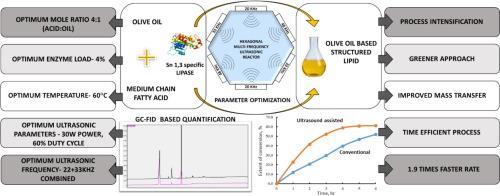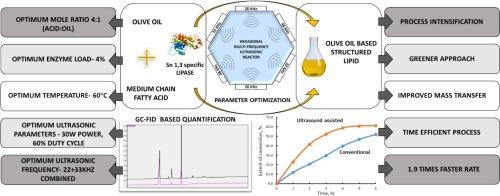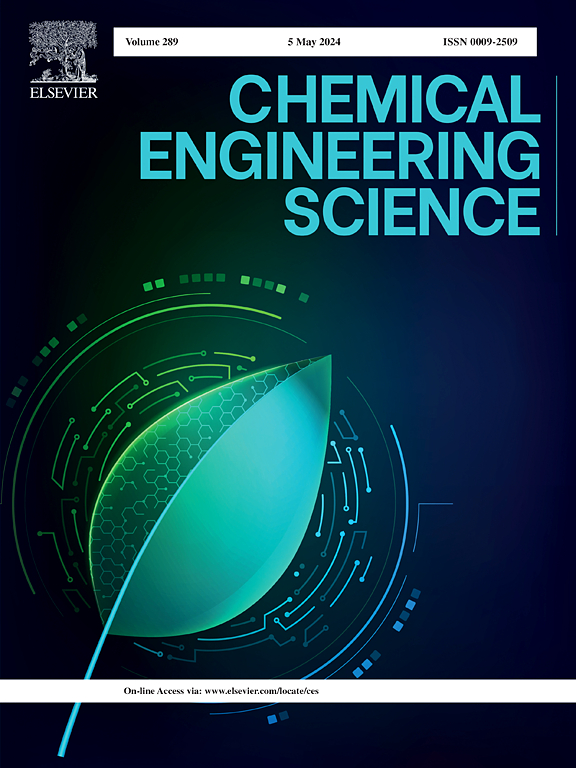利用多频超声波进行酶酸解,强化合成以橄榄油为基础的结构脂质
IF 4.1
2区 工程技术
Q2 ENGINEERING, CHEMICAL
引用次数: 0
摘要
研究人员利用多频六角形超声波反应器,通过酶促酸解法强化合成了基于橄榄油和癸酸的结构脂。超声波辅助工艺在短短 4 小时内将 59% 的橄榄油转化为结构脂,而传统方法在 6 小时内将 52% 的橄榄油转化为结构脂。超声波辅助工艺的优化参数为:4:1 的 M 比、4% 的酶负载、60 °C 的温度、30 W 的超声波功率、60% 的占空比以及 22 + 33 kHz 的组合频率。Sn-2 位点分析证实了酶在酸解反应中对甘油 1,3 位点的特异性。在第六个循环后,只观察到 20% 的酶活性损失,这表明酶在工艺中可重复使用。总之,这项研究有效地强调了使用超声波作为一种强大的方法来强化设计脂质的酶法合成,同时还阐明了最佳操作条件本文章由计算机程序翻译,如有差异,请以英文原文为准。


Intensified synthesis of olive oil-based structured lipids based on enzymatic acidolysis using multi-frequency ultrasound
Intensified synthesis of structured lipids based on olive oil and capric acid through enzymatic acidolysis was investigated utilizing a multifrequency hexagonal ultrasonic reactor. The ultrasound-assisted process achieved a 59 % conversion of olive oil into structured lipids in just 4 h, compared to a 52 % conversion in 6 h with the conventional approach. The optimized parameters for the ultrasound-assisted process were a 4:1 reactant molar ratio, 4 % enzyme loading, 60 °C temperature, 30 W ultrasonic power, a 60 % duty cycle, and a combined frequency as 22 + 33 kHz. Sn-2 positional analysis confirmed the enzyme’s specificity for the glycerol 1,3 positions in the acidolysis reaction. Only 20 % loss in enzyme activity was observed after the sixth cycle, indicating the enzyme’s reusability within the process. Overall, the study effectively highlights the use of ultrasound as a powerful approach to intensify the enzymatic synthesis of designer lipids, while also elucidating the optimal operating conditions.
求助全文
通过发布文献求助,成功后即可免费获取论文全文。
去求助
来源期刊

Chemical Engineering Science
工程技术-工程:化工
CiteScore
7.50
自引率
8.50%
发文量
1025
审稿时长
50 days
期刊介绍:
Chemical engineering enables the transformation of natural resources and energy into useful products for society. It draws on and applies natural sciences, mathematics and economics, and has developed fundamental engineering science that underpins the discipline.
Chemical Engineering Science (CES) has been publishing papers on the fundamentals of chemical engineering since 1951. CES is the platform where the most significant advances in the discipline have ever since been published. Chemical Engineering Science has accompanied and sustained chemical engineering through its development into the vibrant and broad scientific discipline it is today.
 求助内容:
求助内容: 应助结果提醒方式:
应助结果提醒方式:


